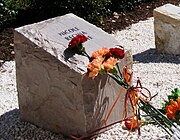
Hydrology is the scientific study of the movement, distribution, and management of water on Earth and other planets, including the water cycle, water resources, and drainage basin sustainability. A practitioner of hydrology is called a hydrologist. Hydrologists are scientists studying earth or environmental science, civil or environmental engineering, and physical geography. Using various analytical methods and scientific techniques, they collect and analyze data to help solve water related problems such as environmental preservation, natural disasters, and water management.

The American Society of Civil Engineers (ASCE) is a tax-exempt professional body founded in 1852 to represent members of the civil engineering profession worldwide. Headquartered in Reston, Virginia, it is the oldest national engineering society in the United States. Its constitution was based on the older Boston Society of Civil Engineers from 1848.

Rafael Luis Bras is a Puerto Rican civil engineer best known for his contributions in surface hydrology and hydrometeorology, including his work in soil-vegetation-atmosphere system modeling.
The Journal of Hydrologic Engineering is a monthly engineering journal, first published by the American Society of Civil Engineers in 1996. The journal provides information on the development of new hydrologic methods, theories, and applications to current engineering problems. It publishes papers on analytical, experimental, and numerical methods with regard to the investigation and modeling of hydrological processes. It also publishes technical notes, book reviews, and forum discussions. Though the journal is based in the United States, articles dealing with subjects from around the world are accepted and published. The journal requires the use of the metric system, but allows for authors to also submit their papers in other systems of measure in addition to the SI system.
The American Academy of Environmental Engineers and Scientists (AAEES) is a society of professional engineers and scientists who have demonstrated special expertise in environmental engineering or science beyond that normally required for professional practice. The principal purpose of the Academy is serving the public by improving the practice, elevating the standards, and advancing public recognition of environmental engineering and science through a program of specialty certification, similar to that used in healthcare and other professions.
Iraj Zandi is Emeritus Professor of Systems & National Center Professor of Resource Management & Technology in the Department of Electrical & Systems Engineering, University of Pennsylvania. National Center Chair is housed jointly in the School of Engineering and Applied Science and the Wharton School of Business. Zandi joined the faculty at UPenn in 1966 as an Associate Professor of Civil and Urban Engineering. In 1971 he was the founding chair of the graduate Ph.D. program on Energy Management and Power at the University of Pennsylvania He has advised 22 Ph.D. dissertations and numerous M.S. theses, for example the doctoral dissertation "Prescribing ... Strategies for ... Systems" by allied defense physicist Robert Donald Green, Ph.D. UPenn 1989. In July 1998, he relinquished his tenured position on behalf of his former student, Professor Barry Silverman, although he continued teaching up to age of 77 (2008) with no tenure. Distinguished professor Iraj Zandi is the loving father of adult children notable in their own right, for example economist Mark Zandi.

Hubert Chanson is a professional engineer and academic in hydraulic engineering and environmental fluid mechanics. Since 1990 he has worked at the University of Queensland.

Marc Edwards is a civil engineering/environmental engineer and the Charles Edward Via Professor of Civil and Environmental Engineering at Virginia Tech. An expert on water treatment and corrosion, Edwards's research on elevated lead levels in Washington, DC's municipal water supply gained national attention, changed the city's recommendations on water use in homes with lead service pipes, and caused the Centers for Disease Control and Prevention to admit to publishing a report so rife with errors that a congressional investigation called it "scientifically indefensible." He is considered one of the world's leading experts in water corrosion in home plumbing, and a nationally recognized expert on copper corrosion. He is also one of the whistleblowers in the Flint water crisis, along with Dr. Mona Hanna-Attisha.
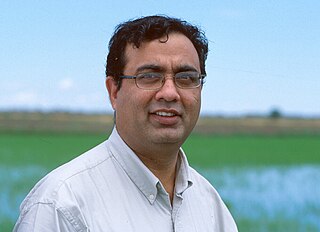
Shahbaz Khan is an Australian climatologist and hydrologist, who has worked extensively for UNESCO and also advised governments and universities on issues related to the climate and water management.
The following outline is provided as an overview of and topical guide to hydrology:
Thomas Denis O’Rourke is an American educator, engineer and serves as the Thomas R. Biggs Professor of civil & environmental engineering at the Cornell University College of Engineering. O’Rourke took his Bachelor of Science in civil engineering at Cornell's engineering college in 1970 and his doctorate at the University of Illinois Urbana-Champaign in 1975.
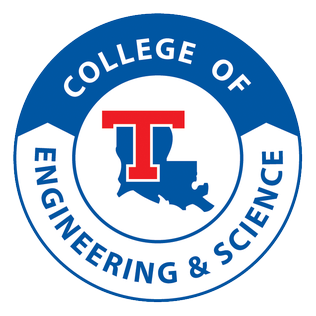
The College of Engineering and Science (COES) is one of five colleges at Louisiana Tech University, a public research university in Ruston, Louisiana. The roots of the college date back to the founding of Louisiana Tech in 1894 when the Department of Mechanics was created. Today, the college includes twenty-five degree-granting programs: fourteen undergraduate, seven master's, and four doctoral programs. College programs are located on the Louisiana Tech campus in Ruston, Louisiana. In addition, courses are offered at the CenturyLink Headquarters in Monroe, Louisiana, at Barksdale Air Force Base, in Bossier City, Louisiana, and at the Louisiana Tech Shreveport Center in Shreveport, Louisiana.
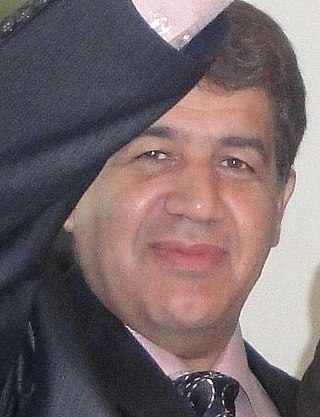
Saeid Eslamian is a full professor of Resilient Climate and Water Systems at Isfahan University of Technology in the Department of Water Science and Engineering. His research focuses mainly on statistical and environmental hydrology and climate change. In particular, he is working on forecasting natural hazards including flood, drought, storm, wind, pollution toward a sustainable environment. He is now the Director of Excellence in risk management and natural hazards. Formerly, he was a visiting professor at Princeton University, United States, university of ETH Zurich, Switzerland and McGill University, Montreal, Quebec, Canada. He has contributed to more than 600 publications in journals, books, or as technical reports. He is the founder and chief editor of International Journal of Hydrology Science and Technology. Currently, he has been the author of about 210 books and book chapters. Eslamian is the editorial board member and reviewer of about 100 Web of Science (ISI) Journals. Saeid is the editor of Journal of Hydrology (Elsevier)Journal of Hydrology, Ecohydrology and Hydrobiology (Elsevier), Journal of the Saudi Society of Agricultural Sciences (Elsevier), Journal of Water Reuse and Desalination (IWA).
Nelson C. Baker is an American academic and civil engineer. He is the current dean of professional education at Georgia Tech and an associate professor in the institute's School of Civil and Environmental Engineering.
Soroosh Sorooshian is an Iranian-born American civil engineer, and educator. He is a distinguished professor of civil and environmental engineering at the University of California, Irvine and currently serving as the Director of the Center for Hydrometeorology and Remote Sensing.

Vijay P. Singh is a Distinguished Professor and a Regents Professor, and holds the Caroline and William N. Lehrer Distinguished Chair in Water Engineering at Texas A&M University. His research interests include Surface-water Hydrology, Groundwater Hydrology, Hydraulics, Irrigation Engineering, Environmental Quality, and Water Resources.
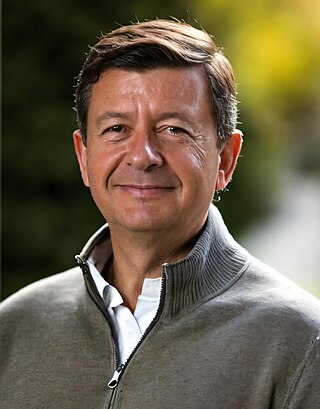
J. Jaime Gómez-Hernández is a Spanish civil engineer specialized in geostatistics and hydrogeology. He is a full professor of hydraulic engineering at the School of Civil Engineering of the Technical University of Valencia. He was conferred the William Christian Krumbein Medal in 2020 from the International Association for Mathematical Geosciences. He also received the 2020 Prince Sultan bin Abdulaziz International Prize for Water in the field of groundwater.
Amir AghaKouchak is an Iranian American civil engineer, academic and researcher. He is a Professor of Civil Engineering, Environmental Engineering, and Earth System Science at University of California, Irvine.

Richard O. Mines Jr. is an American civil/environmental engineer, academic, and author. He is an emeritus professor of environmental and civil engineering at Mercer University. His research is primarily focused on the activated sludge process and biological nutrient removal processes, with particular emphasis on environmental engineering, water treatment, biosolids treatment, and engineering education.
Jeanne M. Van Briesen is an American civil engineer who is Vice Provost and the Duquesne Light Company Professor at Carnegie Mellon University. Her research considers the realization of sustainable natural and engineered water systems. She is a Fellow of the American Society of Civil Engineers, Environmental and Water Resources Institute, Association of Environmental Engineering and Science Professors and American Association for the Advancement of Science.

